Lord of the Rings: Return to Moria marks the first time I've ever been excited for a survival game
Who doesn't want to explore mines and sing Dwarvish songs with their friends?
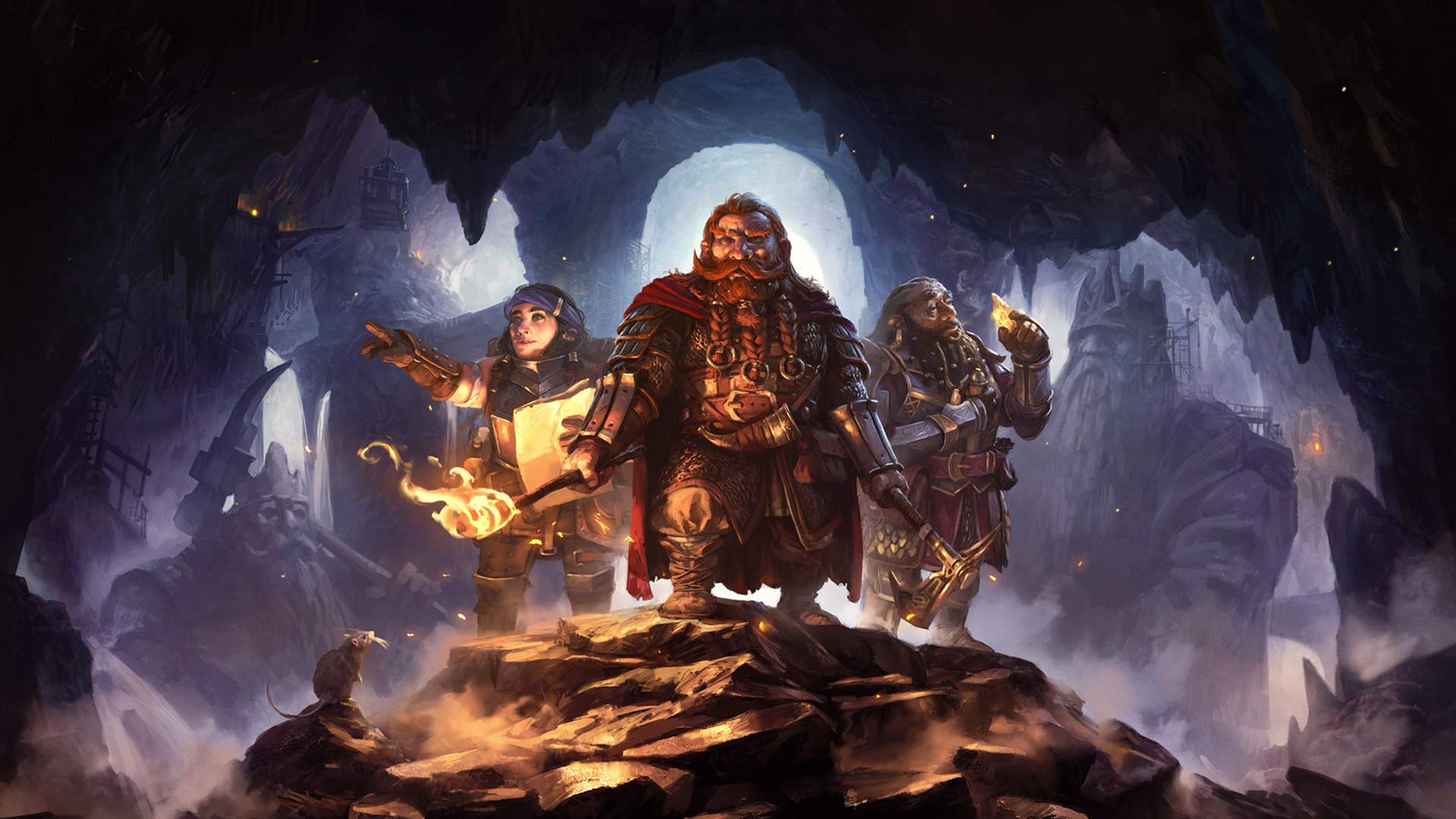
I barely want to minister to my own body's tedious physical needs, never mind a videogame character's, and I've never been much of a Lord of the Rings guy. (I watch the films at Christmas; it's enough.) So consider me flabbergasted that I walked out of a Gamescom demo for Lord of the Rings: Return to Moria—a "survival crafting" game based on those books with the hobbits in them—excited to play it.
I think it's time, my friends. I think I yearn for the mines.
Get greedier, go deeper
Your job is to break down walls, delve ever deeper, and riffle through the bones of your ancestors for cool new materials. But, like, respectfully.
Return to Moria is a game in which you return to Moria, the doomed and ghost-filled dwarven mine that Frodo and company had to journey through in Fellowship of the Ring. It's now the Fourth Age, about 70 years after the destruction of Sauron's Ring. That makes the game the first one set so late in LotR's chronology, says game director Jon-Paul Dumont, and I suppose Middle-earth's dwarves have started to get itchy feet.
Presumably finding their lives lacking tension in the aftermath of Sauron's defeat, the dwarves have decided now would be a great time to try plumbing the depths of their most legendarily cursed bit of cultural heritage, Moria, and reclaiming all the lost glory entombed therein. That's your job. Across mostly procedurally generated maps (iconic locations like the Bridge of Khazad-Dûm are fixed), your job is to break down walls, delve ever deeper, and riffle through the bones of your ancestors for cool new materials. But, like, respectfully. Solemnly.
The exploration is what has me interested. Where other other survival and crafting sims seem to want me to pour hours of my life into meticulous base construction, I get the impression I can merrily mine my way through Moria without having to do much more than build a series of base camps. Dumont was keen to emphasise that Return to Moria caters to both kinds of players: You can set up your own bases and place things as you choose or—if you're like me—content yourself to rebuild the ruined bases you come across.
Moria actually looked quite varied in the short slice of it I saw. While there were plenty of gloomy, stoney tunnels, there was also a fair amount of verticality: plenty of cavernous chambers which seem to stretch endlessly upwards. The demo ended with Dumont breaking into the city of Dwarrowdelf, a sprawling dead metropolis filled with orcs of different factions—not all of whom get along—that looked to be made up of several different tiers.
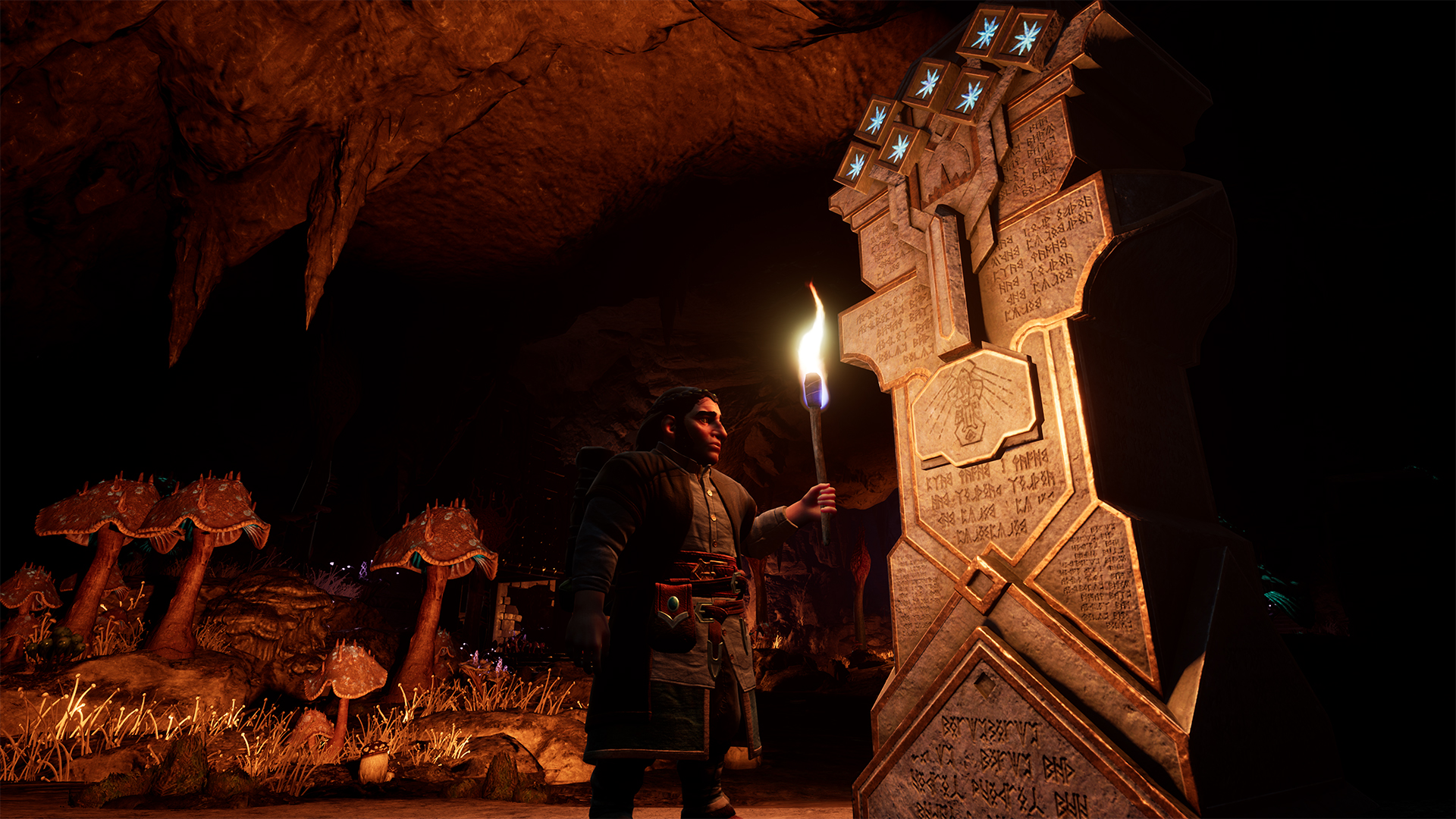
The real news here is that Return to Moria has a whole bunch of songs for your dwarves to sing as they mine and drink.
You can explore Moria with up to seven of your friends, if you want to, and you won't have to make a new dwarf to do it. Dumont says you'll be able to take your own pre-existing dwarf into other people's games if you so choose.
Keep up to date with the most important stories and the best deals, as picked by the PC Gamer team.
That's not to say there aren't familiar survival game tropes here. The hardy, distinctly Gimli-esque dwarf in my demo had to manage his hunger and thirst like any other character in the genre as he wandered Moria's mazes, but there were also two more meters: light and noise. Dwarves tend to lapse into despair—an eventually fatal condition—when left in the dark for too long, while making too much noise will bring Moria's orcish inhabitants bearing down on you.
Canon fire
But look, all of this is preamble. The real news here is that Return to Moria has a whole bunch of songs for your dwarves to sing as they mine and drink, and some of them are in proper Dwarvish. Free Range seems intensely dedicated to Tolkien's lore, and Dumont was eager to tell me the studio is working with three separate Tolkien experts to make sure everything lines up with the canon. The studio is even working with a Tolkienian linguistics expert—David Salo—to make sure its Dwarvish can pass a fluency test.
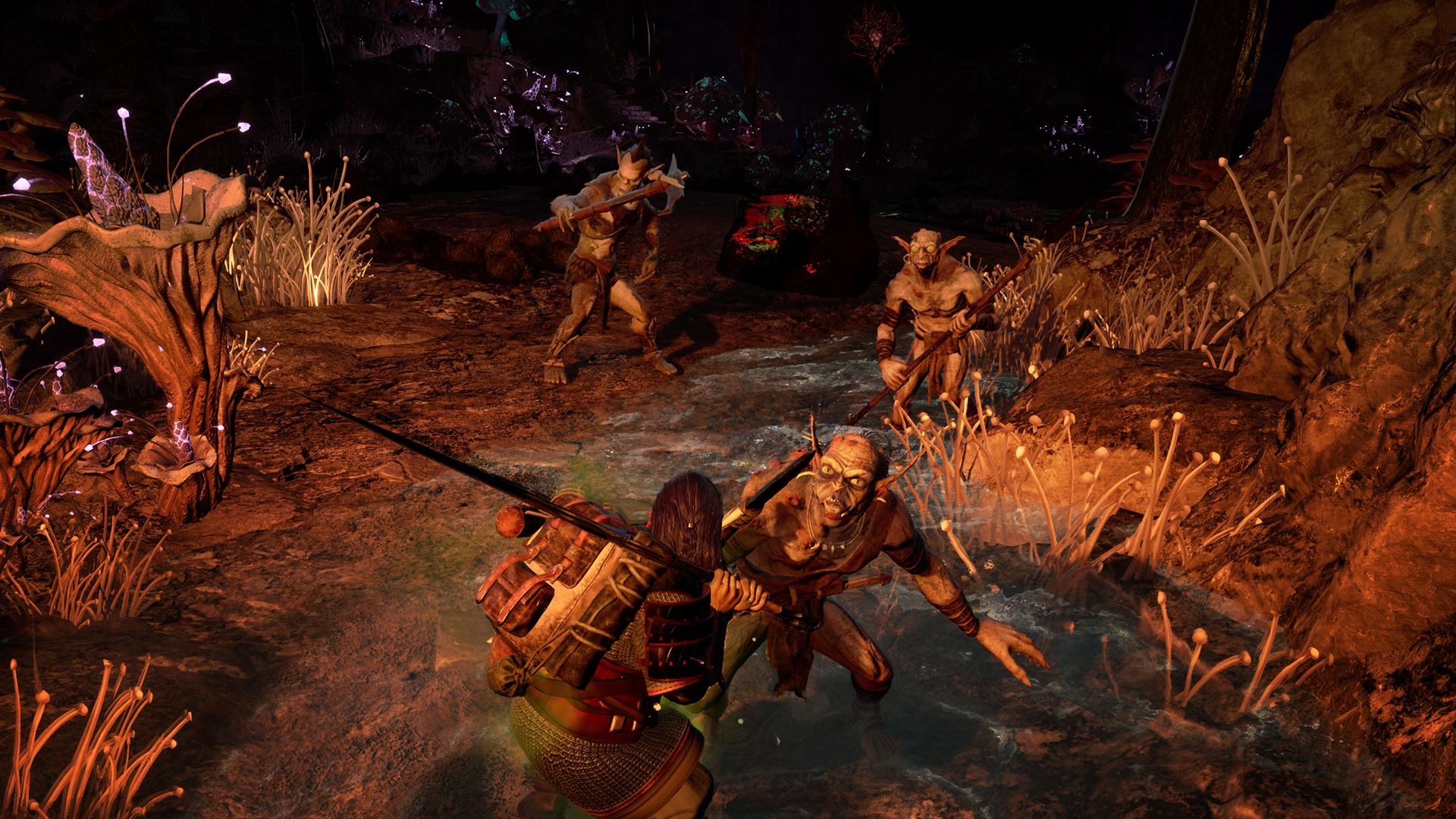
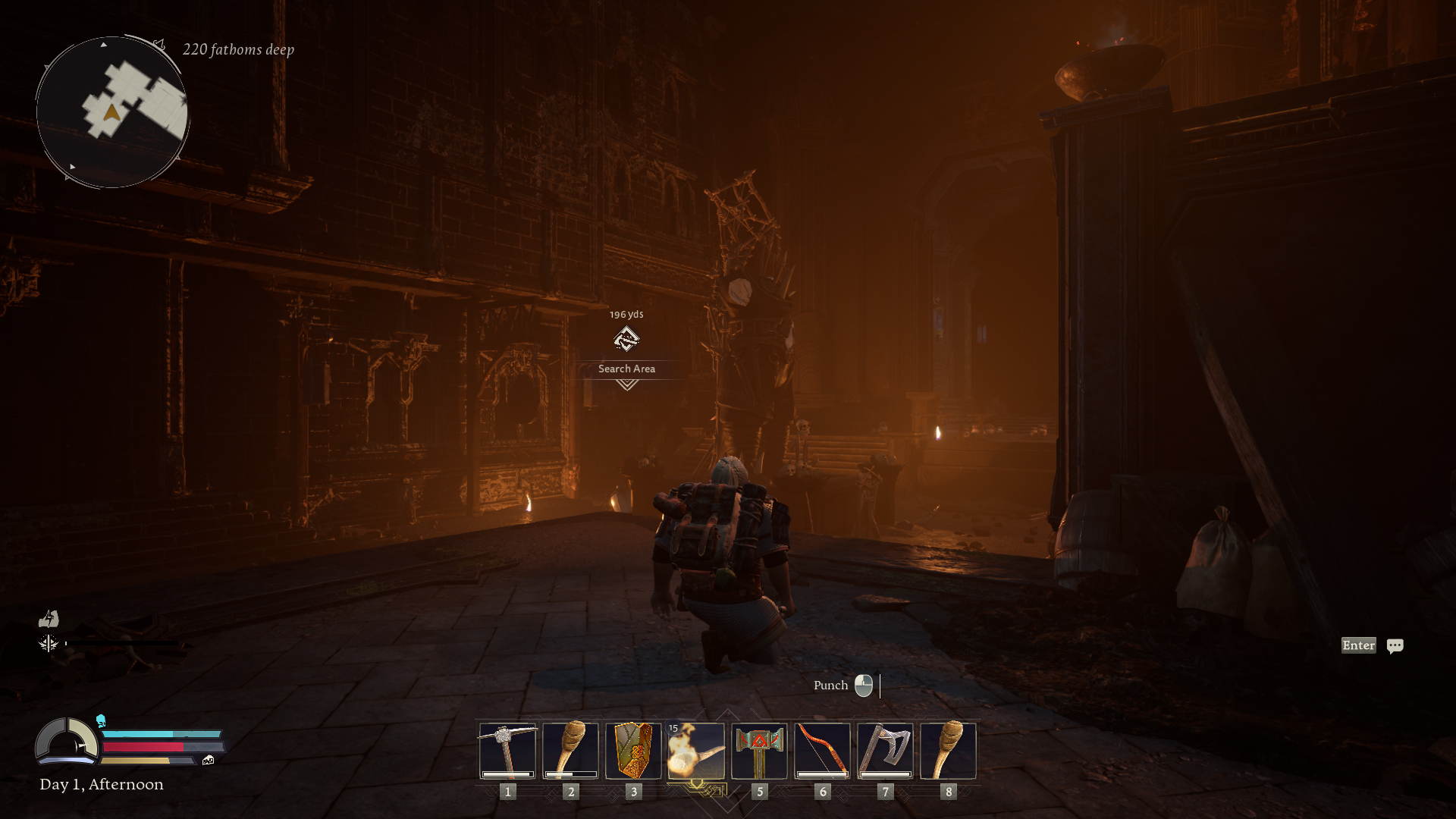
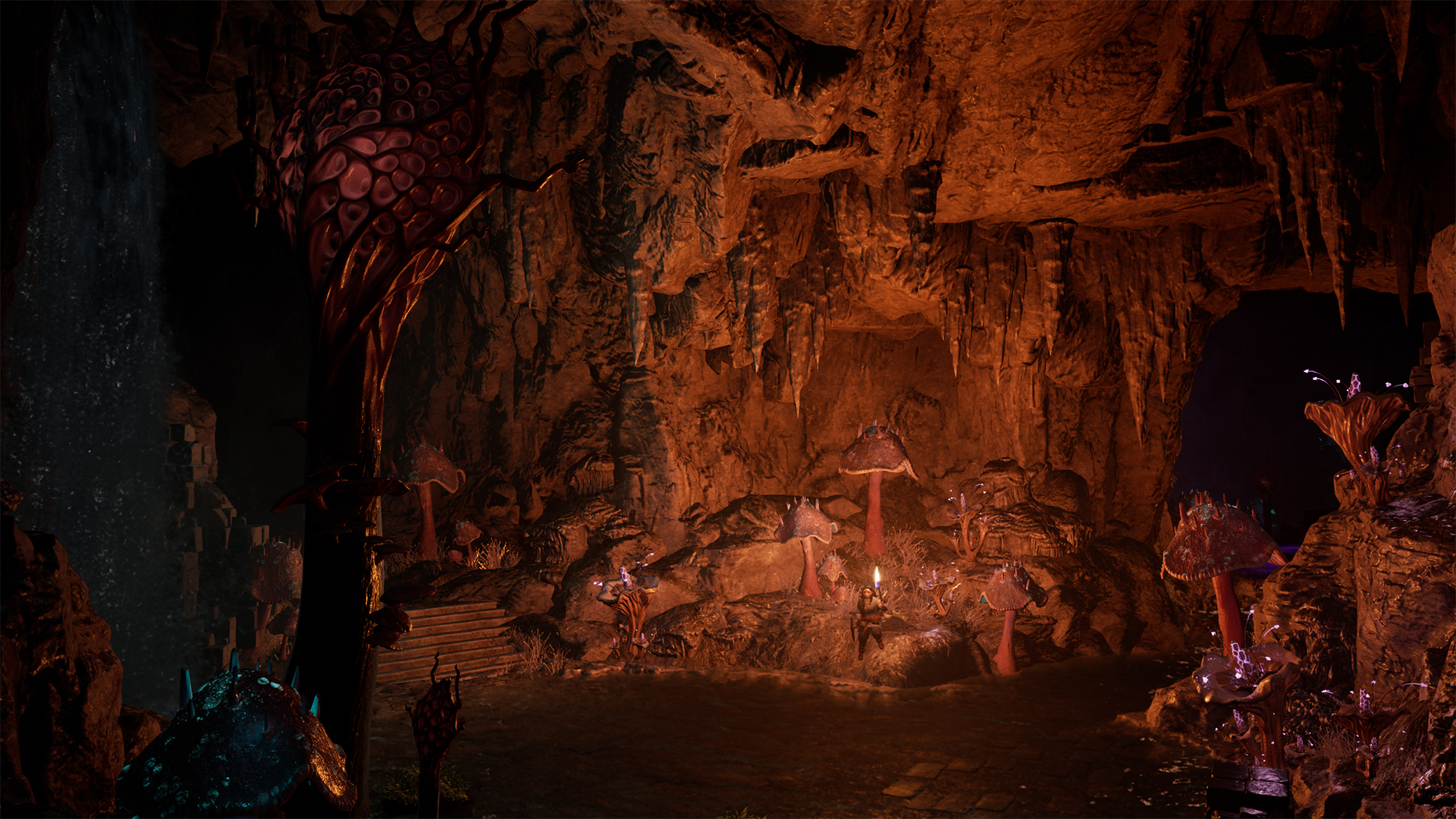
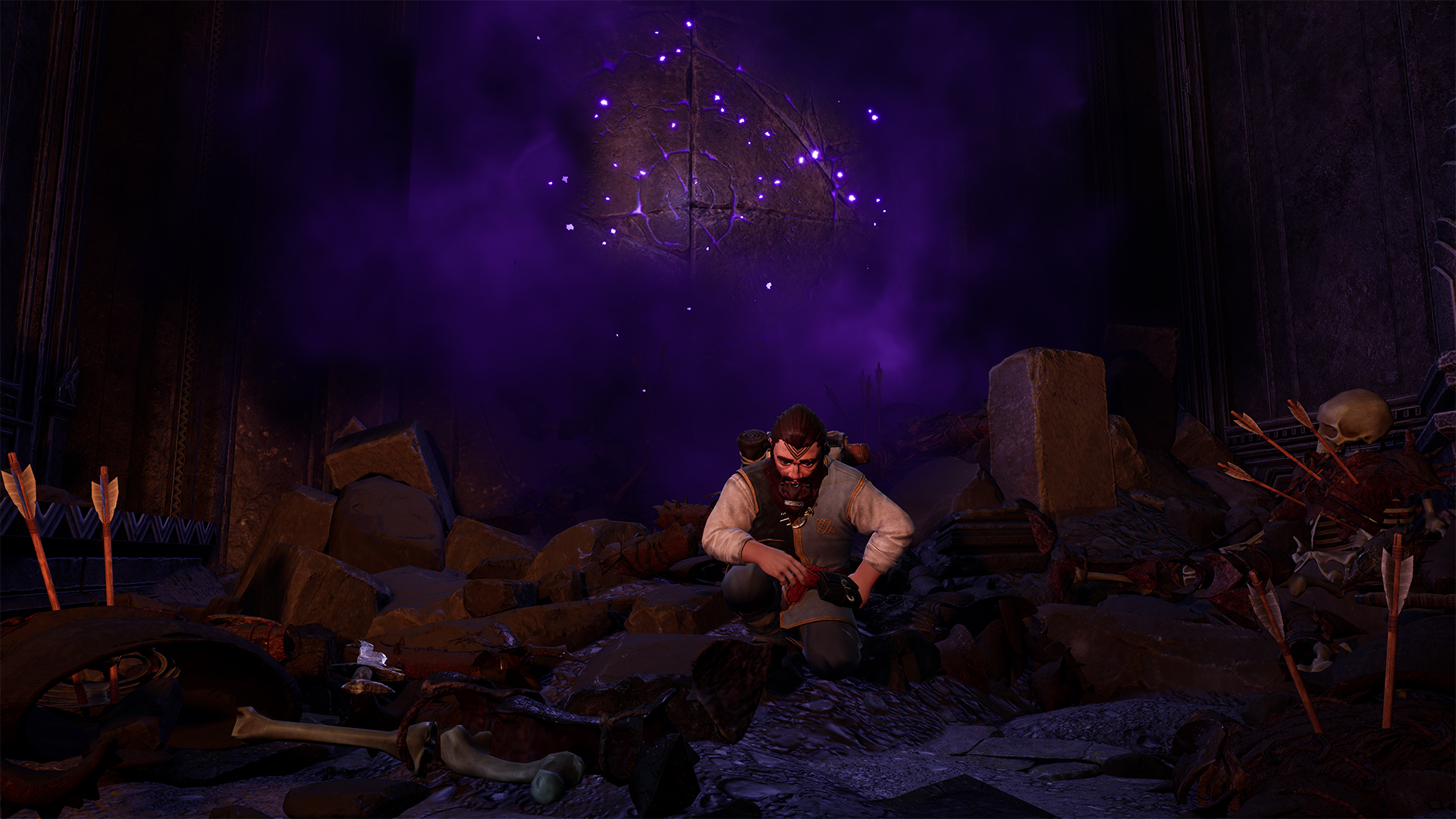
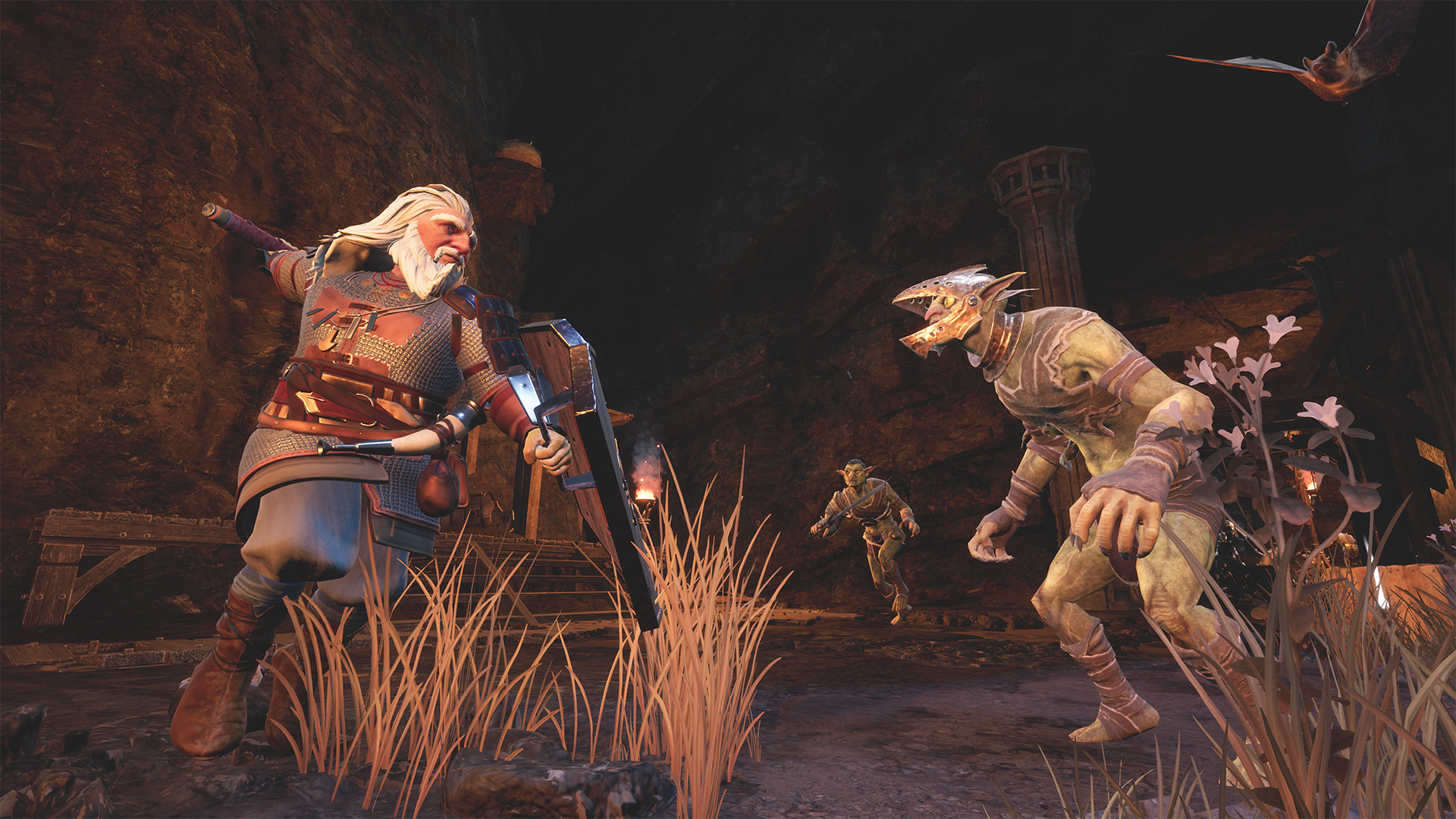
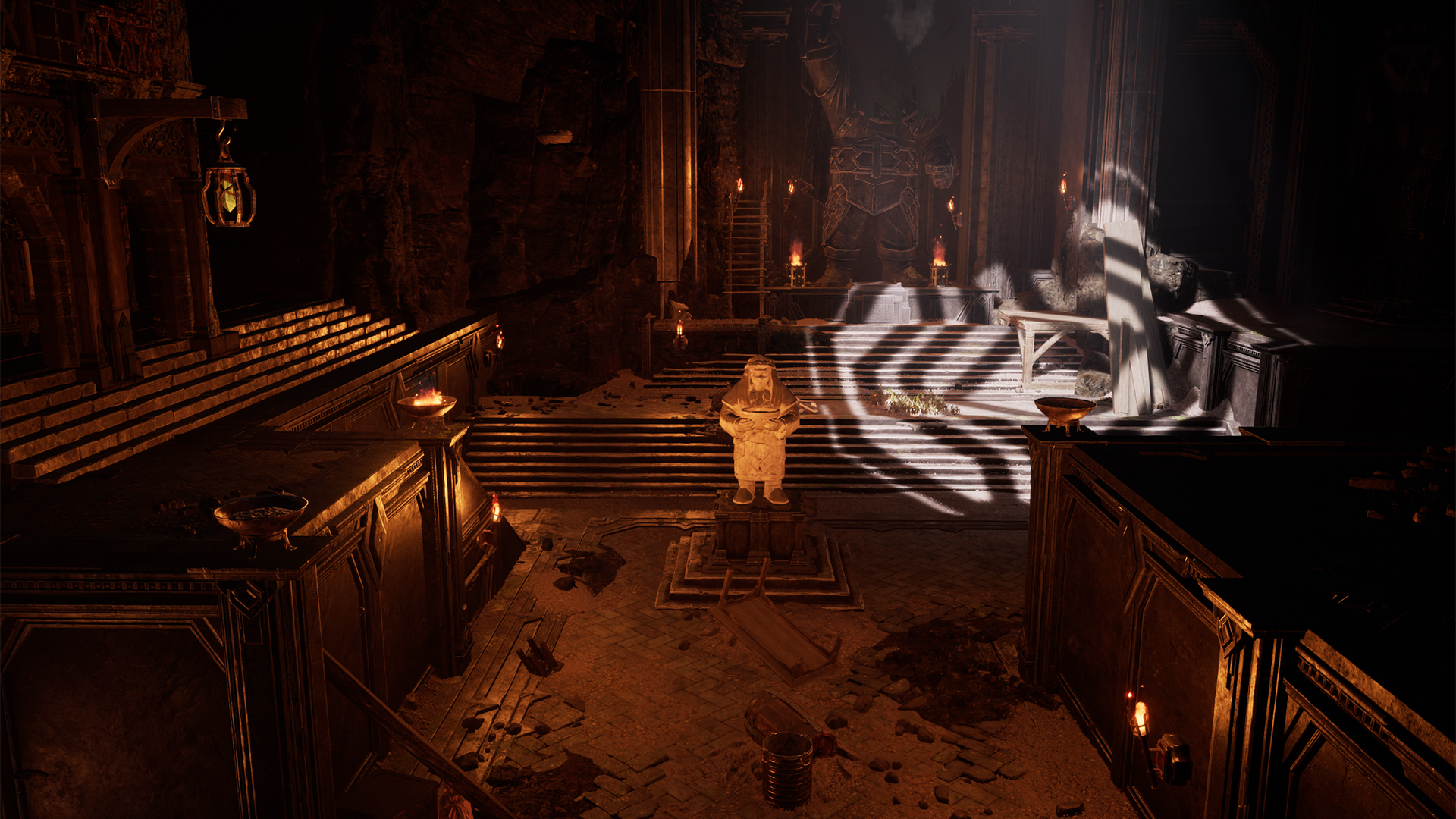
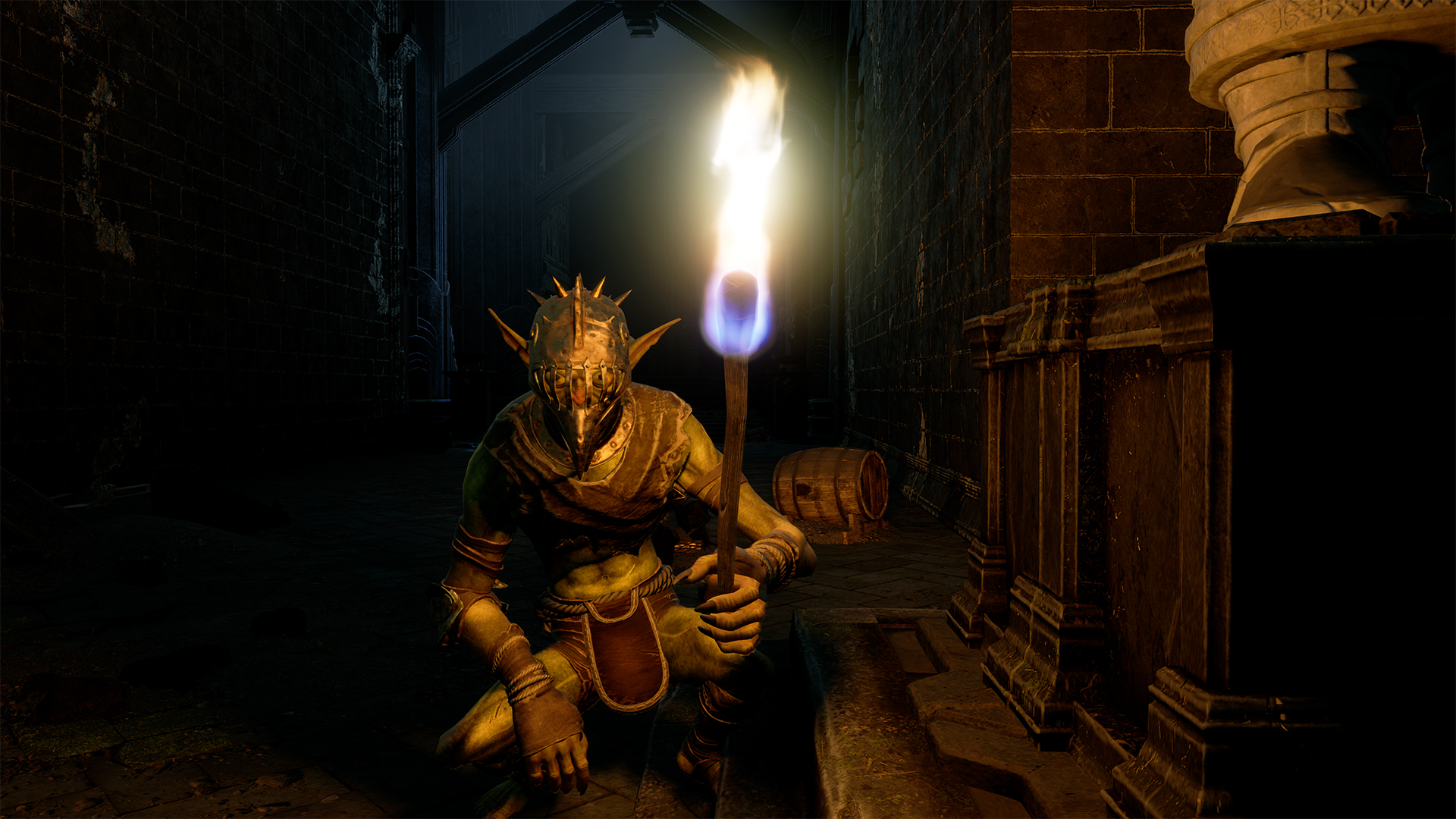
But strangely enough, Dumont is reluctant to call the game canon. When I asked him if the game, being set in a period of LotR's chronology we don't usually see, is official canon, he told me that, so far as he's concerned, "The only thing that's canon is what Professor Tolkien wrote." He eventually settled on an answer of "probably no" to my question, which didn't seem to displease him any.
I suspect that might put the game in fans' good graces. Dumont's willingness to ramble about minor aspects of Middle-earth lore, the fact he never calls Tolkien anything but "Professor Tolkien," and his hesitancy to put the game he's working on on the same level as the original books will probably go over quite well with everyone who got annoyed by Sexy Shelob.
Return to Moria will be out October 24 on the Epic Games Store.

One of Josh's first memories is of playing Quake 2 on the family computer when he was much too young to be doing that, and he's been irreparably game-brained ever since. His writing has been featured in Vice, Fanbyte, and the Financial Times. He'll play pretty much anything, and has written far too much on everything from visual novels to Assassin's Creed. His most profound loves are for CRPGs, immersive sims, and any game whose ambition outstrips its budget. He thinks you're all far too mean about Deus Ex: Invisible War.

